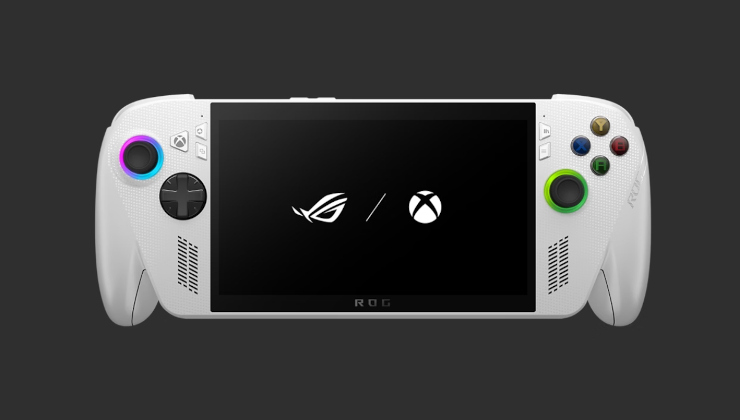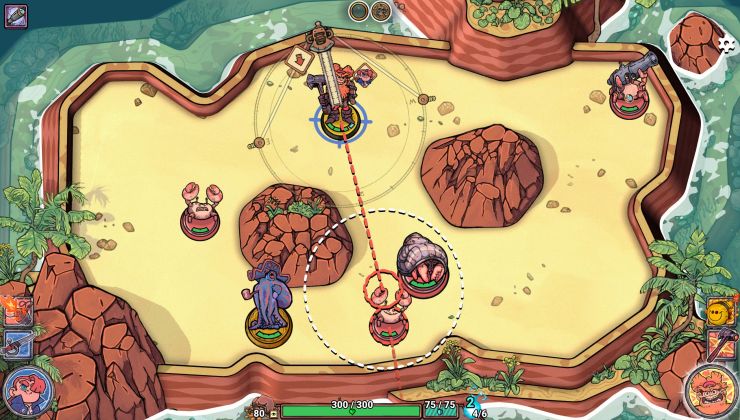It seems that the big Steam update, which rolled out on December 12th disabled support for the Steam Web Browser for 32-bit distributions. Steam also no longer supports 32-bit Linux distributions.
The change wasn't listed explicitly in the client update notes, but the official Steam Knowledge Base Article has been updated to clearly list that 32-bit Linux distributions are no longer supported:
Users running on 32-bit Linux distributions will see "The Steam Browser is disabled" message when they try to access the Steam Store, overlay web browser, achievement pages or other Steam functions that open a web browser through the client, and will have to use a standalone browser to access these features now.
Other features that do not depend on the built-in browser (like Steam friends, game invites and at least part of big picture mode) are unaffected by the change.
Since the vast majority of GOL users seem to be running a 64-bit distribution on their gaming machine, most will not experience the difference, but here's the reminder for the two remaining users.
However, since all the missing functionality (aside from using the browser in the overlay) can be mitigated by logging into your Steam account in a regular desktop browser, the lack of the feature is limited to an annoyance (hopefully Valve will think about simply allowing launching games from the store) and hopefully this is a sign of a true 64-bit Steam client for Linux.
Note: Article cleaned up for publishing by liamdawe.
The change wasn't listed explicitly in the client update notes, but the official Steam Knowledge Base Article has been updated to clearly list that 32-bit Linux distributions are no longer supported:
QuoteLinux
32-bit Linux distributions are also no longer supported. Please install a 64-bit Linux distribution to make use of the Steam browser.
Users running on 32-bit Linux distributions will see "The Steam Browser is disabled" message when they try to access the Steam Store, overlay web browser, achievement pages or other Steam functions that open a web browser through the client, and will have to use a standalone browser to access these features now.
Other features that do not depend on the built-in browser (like Steam friends, game invites and at least part of big picture mode) are unaffected by the change.
Since the vast majority of GOL users seem to be running a 64-bit distribution on their gaming machine, most will not experience the difference, but here's the reminder for the two remaining users.
However, since all the missing functionality (aside from using the browser in the overlay) can be mitigated by logging into your Steam account in a regular desktop browser, the lack of the feature is limited to an annoyance (hopefully Valve will think about simply allowing launching games from the store) and hopefully this is a sign of a true 64-bit Steam client for Linux.
Note: Article cleaned up for publishing by liamdawe.
Some you may have missed, popular articles from the last month:
All posts need to follow our rules. Please hit the Report Flag icon on any post that breaks the rules or contains illegal / harmful content. Readers can also email us for any issues or concerns.
*shrug*
2 Likes
Now if only those lazy devs who only ever released 32bit versions of their games would actually realise how stupid that is...
3 Likes
A 64bit client would be nice indeed.
13 Likes
Yes! Finally!
Now if only those lazy devs who only ever released 32bit versions of their games would actually realise how stupid that is...I don't really care whether they do that _also_. But having no 64bit-version is a no-no, as is not testing whether the 64bit version runs.
0 Likes
It's true that under Linux almost all the AAA games are 64 bits only except the very first ones like Wargame EE. Sooo it makes sense to drop 32 bits distro support. But in that case they should release a 64 bits only client.
4 Likes
Eeeeewhaaaaaaaat?
But.. the steam client is 32-bit. It uses 32-bit flash for videos. It relies on 32-bit libraries to run on a 64-bit system, but it doesn't work properly on a 32-bit system? By design?
I'm not complaining. It's just fucking weird.
This.
But.. the steam client is 32-bit. It uses 32-bit flash for videos. It relies on 32-bit libraries to run on a 64-bit system, but it doesn't work properly on a 32-bit system? By design?
I'm not complaining. It's just fucking weird.
A 64bit client would be nice indeed.
This.
9 Likes
32bit should die allready.. seriously.
make the client fully 64bit also!
make the client fully 64bit also!
4 Likes
32bit should die allready.. seriously.
make the client fully 64bit also!
No, then people would lose access to the ability to download games that they've paid for the right to play. There must be some alternative in that case: some way to download the game itself on a 32bit system.
all games should be 64bit anyway nowadays.. valve can force devs to make 64bit versions only i guess.
0 Likes
Now if only those lazy devs who only ever released 32bit versions of their games would actually realise how stupid that is...That’s not stupid since 32 bit games work on both 32 and 64 bit systems, while 64 bit games only work on 64 bit systems.
There shouldn't be any 32bit systems left in the world anywhere outsides of a museum. 64bit operating systems aren't exactly a new thing. How old does a computer need to be not to be able to run one? oO
2 Likes
That's the problem with DRM, they just do what they want...32bit should die allready.. seriously.
make the client fully 64bit also!
No, then people would lose access to the ability to download games that they've paid for the right to play. There must be some alternative in that case: some way to download the game itself on a 32bit system.
all games should be 64bit anyway nowadays.. valve can force devs to make 64bit versions only i guess.
All _new_ games, but _old_ games? Valve should just no longer permit people with 32bit systems to access 32bit games they'e bought & paid for the right to play?
-- edit: at the very least, if they cut off 32bit, allow older steam clients to operate and download material, but the problem is moving on and changing any access / drm internals.
I do think 32bit's been outdated for a long time now, but it raises the question as customers: will we forever be able to play those games we paid for?
I am often left wondering, if Steam suddenly ceases to work on my system, for any reason, what would happen?
The moment after, it's the Steam sales and I empty my wallet on even more games...
0 Likes
Well, using a 32-bit OS isn't exactly viable for gaming to begin with. You'd have to have a pretty outdated CPU to not be able to install a 64-bit OS, and Linux installations of any kind don't really use up much RAM(at least, not as much as a 64-bit Windows installation).
Last edited by Aimela on 15 Dec 2016 at 9:35 pm UTC
Last edited by Aimela on 15 Dec 2016 at 9:35 pm UTC
0 Likes
I actually thought it might be a good idea for Valve to release a minimalistic/light client just to allow to download (and play!) the games, if they're going this route. Most of the Steam community functionality can be done by logging on a browser or even using the Steam smartphone app, so that would be a nice way to utilize an old or under-powered device to play games without worrying too much to maintain compatibility with the new features other than downloading, playing and maybe time tracking, achievements and handling friend game invites. One could dream, huh? But maybe...32bit should die allready.. seriously.
make the client fully 64bit also!
No, then people would lose access to the ability to download games that they've paid for the right to play. There must be some alternative in that case: some way to download the game itself on a 32bit system.
Also, as this was so far my first GOL article, thank you liam for publishing it and everything for commenting!
3 Likes
32bit PC Gaming should start being phased out, we cannot be stuck in the early 2000's forever. Involuntarily, someone is always gonna be left behind. If I'm not mistaken Mac has been 64bit exclusive for a few years now already.
Developing PC games in 32bit is bad planning if you ask me, first and foremost you're already limiting the ram usage in your game and secondly you're using an over a decade old technology.
I see a bunch of laptops everyday (97% Windows) and in the majority of cases they're 64bit. The only 32bit ones I see are either Windows XP or Vista with a Core-Duo/DDR2 era CPU.
Last edited by Avehicle7887 on 16 Dec 2016 at 1:24 am UTC
Developing PC games in 32bit is bad planning if you ask me, first and foremost you're already limiting the ram usage in your game and secondly you're using an over a decade old technology.
I see a bunch of laptops everyday (97% Windows) and in the majority of cases they're 64bit. The only 32bit ones I see are either Windows XP or Vista with a Core-Duo/DDR2 era CPU.
Last edited by Avehicle7887 on 16 Dec 2016 at 1:24 am UTC
0 Likes
I am one of those 2 people
:(
:(
3 Likes
Floating point calculations are also limited in 32 bit processors.
0 Likes
32bit PC Gaming should start being phased out, we cannot be stuck in the early 2000's forever. Involuntarily, someone is always gonna be left behind. If I'm not mistaken Mac has been 64bit exclusive for a few years now already.
Developing PC games in 32bit is bad planning if you ask me, first and foremost you're already limiting the ram usage in your game and secondly you're using an over a decade old technology.
I see a bunch of laptops everyday (97% Windows) and in the majority of cases they're 64bit. The only 32bit ones I see are either Windows XP or Vista with a Core-Duo/DDR2 era CPU.
You can talk about "phasing out", but the thing is, we are not talking here about open source software development or something. We are talking about a commercial platform on which you can buy, and theoretically own, a game without having downloaded it yet. So if I buy a game using a 32-bit computer, and then they make changes such that I can no longer download it with/to my 32-bit computer, that is something approaching fraud. If I buy a game, either they have to find some way I can take delivery of that game or they owe me my money back.
And laptops are generally shorter-lived than desktops. My laptop is quite new and certainly 64-bit. But my desktop is fairly old and 32-bit, and I do still play games on it--indeed, it will play games my laptop will not; better graphics card I believe.
2 Likes
Here's an idea. Release a new build of Steam that's amd64-only, but maintain a minimal 32-bit "compatibility" build for as long as distributions keep shipping x86 releases for legacy games and operating systems. Allow both to run simultaneously and seamlessly, if selected from the Preferences.
Games can continue to be sold as 32-bit, but it has to be advertised that it only runs under the compatibility-mode client (which people may not opt to install). This will encourage developers to go 64-bit only, but not forcing them to do so.
By doing this, everybody wins. Valve starts doing something to phase x86 out. People with x86-only hardware can keep using Steam, albeit a minimal version (which is probably more suited to older hardware anyway). People who want to play their old 32-bit games still have the option, but have to install the compatibility build (which integrates nicely with the 64-bit build if both are installed). People who want x86 to die can keep their system clean and free of x86 Steam components!
Games can continue to be sold as 32-bit, but it has to be advertised that it only runs under the compatibility-mode client (which people may not opt to install). This will encourage developers to go 64-bit only, but not forcing them to do so.
By doing this, everybody wins. Valve starts doing something to phase x86 out. People with x86-only hardware can keep using Steam, albeit a minimal version (which is probably more suited to older hardware anyway). People who want to play their old 32-bit games still have the option, but have to install the compatibility build (which integrates nicely with the 64-bit build if both are installed). People who want x86 to die can keep their system clean and free of x86 Steam components!
3 Likes
Nothing prevents developers from offering both 32 and 64 bit versions of their games. Heck, I wish they also included ARM versions and an ARM client. Maybe a possible answer here is to ask for games to be shipped as LLVM IR, then compiled on SteamOS servers for various architectures. I can see some ways of doing it while minimising resource usage (maybe reusing the .data segment between different architectures, for example).
Well, I still have my old (And main) laptop around, and I can play some old or minimalistic games on it, if I want to. The other day, I used it at a counter strike LAN party. While it wasn't great (CS is not my favourite game), It worked pretty well.
I am glad most of these old games do not require DRM, AFAIK. And you can also use steamCMD to download them.
I hope they phase out the 32 bits client in favour of a 64 bits one, but nothing prevents them from shipping a 32 bits client with reduced functionality as well.
Now if only those lazy devs who only ever released 32bit versions of their games would actually realise how stupid that is...That’s not stupid since 32 bit games work on both 32 and 64 bit systems, while 64 bit games only work on 64 bit systems.
There shouldn't be any 32bit systems left in the world anywhere outsides of a museum. 64bit operating systems aren't exactly a new thing. How old does a computer need to be not to be able to run one? oO
Well, I still have my old (And main) laptop around, and I can play some old or minimalistic games on it, if I want to. The other day, I used it at a counter strike LAN party. While it wasn't great (CS is not my favourite game), It worked pretty well.
I am glad most of these old games do not require DRM, AFAIK. And you can also use steamCMD to download them.
I hope they phase out the 32 bits client in favour of a 64 bits one, but nothing prevents them from shipping a 32 bits client with reduced functionality as well.
1 Likes
If i'm not completely mistaken, the Steam client uses Chromium as its browser backend. Chrom(ium) dropped support for 32bit in about version 46-48(?), so maybe Valve doesn't have much choice in the matter if they keep using Chromium.
On the other hand I might just be talking a whole lot of nosh, in which case just grab another coffee and be happy :-)
Edit: Chromium not Chrome.
Last edited by FredO on 16 Dec 2016 at 9:37 am UTC
On the other hand I might just be talking a whole lot of nosh, in which case just grab another coffee and be happy :-)
Edit: Chromium not Chrome.
Last edited by FredO on 16 Dec 2016 at 9:37 am UTC
1 Likes
If i'm not completely mistaken, the Steam client uses Chrome as its browser backend. Chrome dropped support for 32bit in about version 46-48(?), so maybe Valve doesn't have much choice in the matter if they keep using Chrome.
On the other hand I might just be talking a whole lot of nosh, in which case just grab another coffee and be happy :-)
Last I read they used a custom build of Chromium which is open source anyway.
Coffee you just reminded me, I have the filter pot on!
0 Likes










 How to setup OpenMW for modern Morrowind on Linux / SteamOS and Steam Deck
How to setup OpenMW for modern Morrowind on Linux / SteamOS and Steam Deck How to install Hollow Knight: Silksong mods on Linux, SteamOS and Steam Deck
How to install Hollow Knight: Silksong mods on Linux, SteamOS and Steam Deck